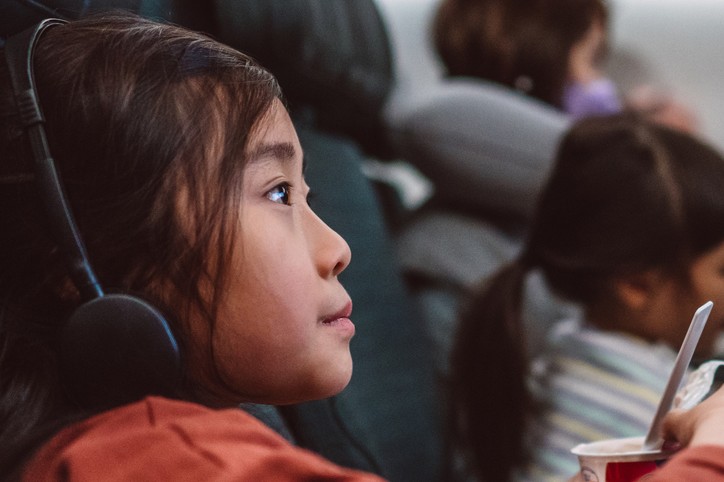Julianne Bosch is a mother to three children as well as a life and career coach. As an expat wife of a busy executive, she made sure her family life was consistent, no matter what continent her family was living on – they moved 13 times in 28 years! In fact, she used traveling and moving as a springboard to teach her children life skills.
“A key component I learned in graduate school is to define the who, what, where, when and how and I applied this five step strategy to my own family when we moved thirteen times to four continents,” says Bosch. “I approached motherhood with intention and my children learned life skills along the way by staying in the model framework—no matter where we were living. The key is: Make it simple for them from the start, then work them up to planning the whole presentation to demonstrate to the board room. The following life skills are for any kid ranging in age from 6 to 24.”
Keep reading for specifics on how to work this framework into your every day life… and your next trip!
Who are you going to have over?
“I would have one free day each week. Friday was ours and it was for pizza night. My husband always worked late that day so it was never a family night or a date night for us. On that day, I would stock all the fixings to make homemade pizzas at our house. The kids knew they could invite anyone over WHO they chose to hang out with (older kids) or have a playdate with (younger kids). Giving them the WHO power avoided the constant ask of having to schedule opportunities with parents. I loved getting to know who they chose and invited over so it made their world my business and I got wonderful, unique pizza combinations to try.”

What do you need?
“Research is a big part of your business plan. So teach your kids to investigate—to find out about WHAT they are doing. Go on the computer and look up where they are moving or where they are visiting or where they want to eat by looking at menus and ask them to bring to the group two or three things they learned and want to explore.
We were moving to Tokyo, Japan, and I asked my children to research what is needed for school, as Tokyo has seasons. We were from Arizona so we really only had hot and hotter as our normal. My kids looked into temperature and current trends for clothing in Tokyo. So my kids came out of the gates ahead since they knew what styles to have available to start school or what clothing to have for a sports activity. With blogs and easy access to the internet, the plan, again, allows for errors. For example, thank goodness my kids pre-purchased several pairs of gym shoes. Size 8.5 was more difficult to find in Tokyo as their average shoe sizes were smaller. You still needed cleats to play soccer, but because we planned, I wasn’t stressed. We were prepared.”
Where are you going?
“One of my favorite life skills I taught my three children was how to figure out where they were going. When they were little, we would arrive in a new city and I would have the agenda of what to see all planned out. However, as they grew older, I would require one day for them to figure it out. But if they don’t practice with you, how do they learn how to do it later on on their own? They would make a bucket list of items they wanted to see and the item that was most likely the easiest to get to, such as a major museum, I would let them tackle.
As the kids grew older, I would have them plan the whole trip. This day was more stressful for my husband than for them. They loved the adventure. They would be taking us the wrong way on the tube (metro) but I would say to my husband, ‘Let them figure it out. We have the whole day to explore. It doesn’t matter if it takes us five hours to get there.'”

When are you going to do this?
“I was always a planner. As my children grew older, I would give them experiences instead of gifts for major holidays such as Christmas. So when the gift was supplied early, they could then help me plan all the details and the activities. My daughters would add items to see or eat at or try. Knowing the when gives your children something to look forward to. For example, when my husband and I gave them a trip to China, my daughter researched Peking Duck, as she loves trying local food. So when we arrived on our first night she made special arrangements to eat at a restaurant known for the oldest location in Beijing that serves this dish. It was a memorable night and now we always compare current experiences to that one memory.”
How are you going to get there or get around once you arrive?
“My family loves to travel, but how are you going to get there? Plane, train or automobile? Prepare for the trip once you know the mode of transportation and how you are going to get around. More importantly, how are they going to get around the foreign city? Is there a metro? Are taxis expensive? Talk to your kids before you set off for the day exploring and make them a part of how they are going to get to and see the beautiful vacation spot.
If you travel by plane to foreign countries, start with simple questions: What is needed to enter this country? Visa or Passport? Investigate with them online and see if your child needs a passport and/or a travel card (travel cards are only good for US citizens going to Mexico and cost a little extra when applying for a passport). Have them fill out the information with you so they know HOW to enter a country.
When visiting another country, the travel ID card is wonderful for your kids to have as a second form of identification. Especially when they are young, it helps them to have identification on them at all times. When traveling, I would make sure my kids kept their ID cards with them along with a card of the hotel—as well as important information such as: cross streets or landmarks that are close to our hotel. How they could get back to the hotel was critical in case of an emergency. They were prepared to be found if lost and they were ready to show ID if asked. But, the very best…Do you remember that long wait in the DMV line? Who wants to go replace your sweet 16 child’s drivers license if they lose it while traveling? Why not carry the travel passport card on them instead and leave the drivers license back at the hotel safe?”
Bottom line: Involve children in making and executing decisions, it’s an incredible way to empower them with the life skills they’ll need to navigate the world on their own.








